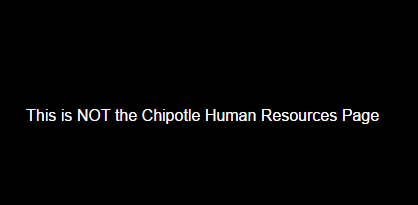Learn a new word: 'Foldering'
From the world of 'the lengths people will go to in order to keep their employers, law enforcement, and/or the government from snooping on their digital communications' comes today's Learn a New Word - 'Foldering'.
Not familiar?
Neither was I until I saw the term pop up in one of the (many) legal scandals and issues swirling around in the Federal Government lately.
Here's the definition of 'Foldering' from our pals at Wikipedia:
Foldering is the practice of communicating via messages saved to the "drafts" folder of an email or other electronic messaging account that is accessible to multiple people.
Foldering is sometimes described as a digital equivalent to the dead drop.Like the dead drop, it has no usage outside of clandestine communications.
So you want/need to send someone an email, but want to (try) to make sure that no one but the intended recipient gets their eyes on its contents?
Well, since we know employers can see your sent emails and so can big tech like Google or Yahoo (once they get an order to turn over data from the Feds), you try this 'Foldering' tactic.
You set up an email address, create your intended email, but instead of sending the email to your recipient, you save the message as an unsent Draft. You then share the email account's login credentials with your recipient, (hopefully not in an email), and then they simply log in to the account, read the draft message, and then update the draft message (again without sending).
The two of you then go back and forth updating the message(s) in the Drafts folder instread of actually sending any email - thus the term 'Foldering'. Once the needed information is shared, someone deletes the draft - the idea being that by not ever sending the message it is less likely to be ever discovered by outsiders.
But the practice of Foldering while not that common, appears to be pretty well-known by Federal authorities who tend to interpret the act itself of indicating some kind of questionable or sketchy behavior. It isn't illegal per se, but it sends a red flag to information security and law enforcement types for sure.
I don't know if this really has too much of a workplace connection, unless your workplace is, well 'unusual', but it might be something you want to check on with your IT folks once in a while anyway. Maybe your kids too. Except your kids probably don't use email.
Learn something new every day. Like a new word. Like 'Foldering'.
Have a great day!

 Steve
Steve

